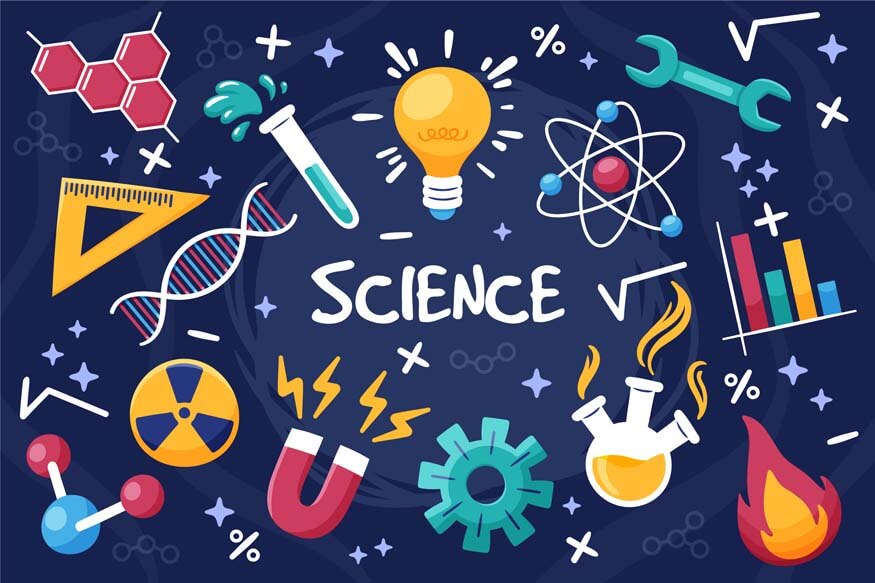What is Learning Sciences:
Learning Sciences is the study of how students learn and the most effective ways to educate. It includes education, and technology to better understand how our brains collect information and to create an effective learning method. The main goal is to improve the quality of education and training by including science research in the learning process.
Also Read: The Importance of School Education
Importance of Learning Science:
- Advancing Human Knowledge:
- Driving Technological Innovation:
- Solving Global Challenges:
- Nurturing Critical Thinking:
- Cultivating Curiosity and Inquiry:
- Fostering Problem-Solving Skills:
- Encouraging Evidence-Based Decision Making:
- Promoting Lifelong Learning:
- Fostering Global Collaboration:
- Empowering Informed Citizens:
- Inspiring Future Scientists and Innovators:
- Understanding Ethical Implications:
- Enhancing Adaptability and Resilience:
- Uniting Diverse Disciplines:
- Preserving Cultural Heritage:
Science education is the base of human knowledge. It helps us to figure out the fundamental principles and rules that rule the world. Science helps us understand the complexity of being human, from knowing the fundamental building blocks of matter in physics to uncovering details of life in biology.
Science is the engine that promotes technological development. Medical, transportation, communication, and other businesses benefit from technology. If we don’t have a fundamental understanding of science, we will lack the skills and ability to build new technologies that improve our lives and society.
In an ever-changing world facing numerous challenges, science learning is essential for finding sustainable solutions. From climate change and environmental degradation to global health crises, scientific research and expertise are critical in addressing these complex problems.
Science education develops critical thinking by having students analyse facts, question assumptions, and develop conclusions based on actual data. This analytical method is relevant in many areas of life, from making informed decisions to analysing information in an age of information overload.
Science learning nurtures curiosity and a spirit of inquiry. When students engage in scientific investigations, they develop a natural tendency to question the world around them and seek answers through systematic observation and experimentation.
Through science learning, students develop problem-solving skills. Scientific inquiry involves identifying problems, designing experiments, analysing data, and drawing conclusions. These problem-solving abilities are transferable to many domains, including business, engineering, and everyday life challenges.
Science learning provides students with the capacity to differentiate true information from questionable ideas in a society where false information and science are common. We may make educated decisions that benefit ourselves and society by depending on research decision making.
Science learning instils a love for learning and a curiosity that extends beyond formal education. A scientifically literate individual is more likely to continue seeking knowledge, staying updated with the latest research, and engaging in lifelong learning.
Science is a global language that breaks across all boundaries and cultures. Collaboration among scientists from various nations and backgrounds encourages international collaboration, resulting in scientific discoveries and answers to world problems.
In a democratic society, science literacy is crucial for informed citizenship. When individuals understand scientific concepts and the implications of scientific research, they can participate in discussions about public policies, health initiatives, and environmental conservation.
Learning about science motivates the next generation of scientists, engineers, and creators. Educators may inspire kids to find jobs in STEM disciplines by creating their passion for science.
Science often raises ethical questions related to technology, medical research, and environmental impact. Science learning helps individuals appreciate these ethical considerations and encourages responsible decision making in scientific endeavours.
Scientific inquiry involves trial and error. When students encounter challenges and failures in experiments, they learn resilience and the importance of perseverance in the face of adversity.
Science learning bridges the gaps between various disciplines. It allows us to see the interconnectedness of different fields and promotes a holistic approach to problem-solving.
Scientific approaches and procedures are important in protecting cultural legacy items such as objects, works of art, and old texts. Science is essential for the preservation and recovery of our common cultural history.
Also Read: Hard skills for students: what they are and how to develop them
Real Time Examples Of Why Learning Science is Important:
Weather Patterns:
Students may learn about weather by analysing weather data and developing projects based on atmospheric conditions. They can study weather patterns over time and learn about elements such as air pressure and temperature that affect weather variations.
Water Filtration:
Students can investigate the process of water filtration by constructing a basic filter system out of stones, sand, and activated charcoal. This experiment highlights the significance of safe drinking water and the function of filters in achieving it.
Electric Circuits:
Students may learn about the flow of electricity and the concept of a full circuit by creating basic electrical circuits with batteries, wires, and light bulbs. They can investigate how switches can be used to regulate the flow of current in a circuit.
Ecosystem Study:
Students can visit a local park or natural area to observe and document the interactions between plants, animals, and the environment. This activity helps them understand ecological concepts like food chains, habitats, and biodiversity.
Cleaning Chemical Reactions:
Students can look into the chemical reactions that occur in cleaning chemicals. They can, for example, evaluate the efficiency of various cleaning chemicals on various spots and learn about the science behind stain removal.
Nutrition:
Nutrition labels on food products might help students understand the value of a balanced diet and the function of nutrients in supporting good health. They can also learn about the science of digestion and metabolism.
Motion and Forces:
Students can experiment with simple machines, like levers and pulleys, to understand the principles of motion and forces. They can observe how these machines make work easier and learn about concepts like mechanical advantage.
Sound Waves and Music:
Students can explore the science of sound waves and how they create music. They can investigate the relationship between pitch, frequency, and the length of musical instruments, such as strings or tubes.
Also Read: Computer Education: Meaning, Evolution, Importance, Benefits
Conclusion:
The advantages of learning science are numerous and include several aspects of human life and society. It is a powerful tool for advancing human knowledge, encouraging critical thinking, and driving technical innovation. Highlighting the importance of learning science in Euroschool is about developing knowledgeable persons who can actively contribute to a brighter future for everybody.











